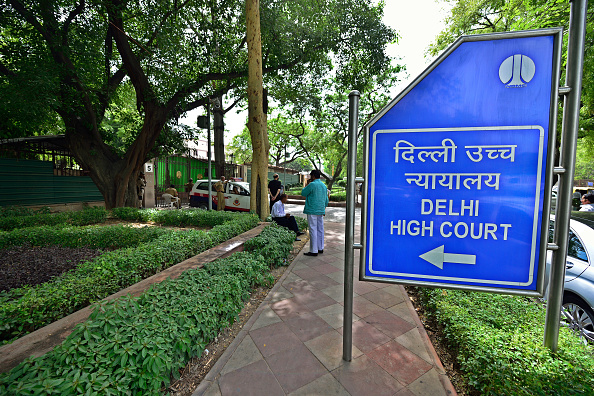The Delhi High Court on Sunday said that false allegations of dowry harassment or rape made by a woman against her husband’s family members amount to “extreme cruelty” that cannot be justified.
The court also emphasized that the foundation of any matrimonial relationship lies in cohabitation and conjugal ties. When a couple is deprived of each other’s companionship, it signifies that the marriage cannot endure, and such deprivation of conjugal relations constitutes an act of extreme cruelty.
These remarks were made by the court while dismissing an appeal by a woman challenging a family court’s decision to grant a divorce decree in favor of her estranged husband on grounds of cruelty.
“In the present case, the parties have been living separately since 2014, clearly indicating their inability to maintain a matrimonial relationship, thus depriving each other of mutual companionship and conjugal relations. Such nearly nine years of separation is a clear instance of severe mental cruelty, warranting the immediate dissolution of the matrimonial relationship under the Hindu Marriage Act,” stated a bench of Justices Suresh Kumar Kait and Neena Bansal Krishna.
The bench pointed out that false complaints filed by the wife against her husband constitute mental cruelty against the husband.
“It is essential to recognize that leveling serious allegations, including dowry harassment and rape, against the respondent’s (husband’s) family members, which are later proven to be false, constitutes an act of extreme cruelty that cannot be forgiven,” the high court declared.
The court observed that the estranged couple had barely been able to live together for about 13 months and were unable to sustain their marital relationship.
“The deprivation of each other’s company and conjugal relations by a couple is an extreme act of cruelty, as endorsed by the apex court,” the bench noted.
The court highlighted that the woman had filed a criminal case against her husband and brother-in-law, accusing them of rape and cruelty, but both men were acquitted of all charges by a trial court.
“The appellant (woman) pursued her allegations by appealing against the acquittal order, which is pending in this court. However, this does not negate the observations of the additional sessions judge that the allegations were manipulative and false. Notably, it emerged during the evidence that the appellant had consulted a lawyer before lodging the complaint that led to the FIR being registered,” the high court stated.
The couple had married in November 2012 but had been living separately since February 2014. The man claimed that from the beginning of their marriage, the woman failed to fulfill her household duties, frequently visited her parental home without informing him or his family, and even made threats of self-harm and false accusations against him and his family. The woman, on the other hand, alleged harassment, humiliation, and physical and mental abuse by her mother-in-law and husband.
(With PTI inputs)





